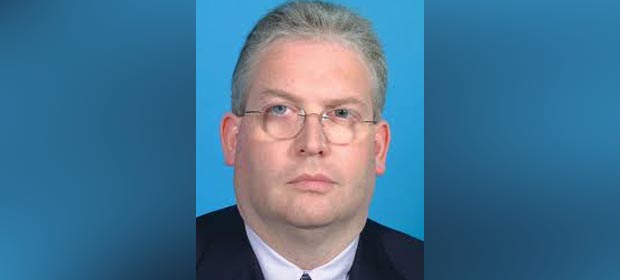The HSE has sought an additional €1.867bn to run the health services in 2016, but Health Minister, Dr. Leo Varadkar and Public Expenditure and Reform Minister, Mr. Brendan Howlin have said it was not possible for the Government to provide this level of funding. Maureen Browne reports.

The HSE has estimated that it would need a total of €14bn to run the health services in 2016, which would include €420 million for new services and improvements in existing services, including those for the care of the elderly.
HSE Director General, Mr. Tony O’Brien said frontline health services required significant extra investment “to begin to repair the impact of six to seven years of austerity and move towards acceptable levels of service”.
The Director General said the HSE had a formal obligation to set out clearly what was necessary to address the deficiencies in these services and provide a safe environment for those who used the services and those who worked in them.
The Director General said the HSE had a formal obligation to set out clearly what was necessary to address the deficiencies in these services and provide a safe environment for those who used the services and those who worked in them.
Senior health managers have welcomed what they see as Mr. O’Brien’s straight talking. They are very pleased that he has made it clear that it is the Government’s responsibility to provide the funding for the required level of save services.
“We are sick and tired of being pilloried by politicians for not providing services for which we just don’t have the funding,” said one manager.
Colleagues were in agreement saying it was time that it was made plain to the public that certain services just could not be provided because of lack of money and/or staff and that it was really unfair to expect managers to either shut down services or run them on the type of shoestring, which could lead to less than optimum services for which they would then be blamed.
“I am delighted to hear the D.G. speaking out and I hope some good will come of it.”
“There are 300 consultant posts vacant, we are short far more nurses, yet we are expected to provide services as if all these posts were filled,” said one worried manager. “We have beds we can’t afford to open, existing acute beds are occupied by patients who should be cared for in the community but who can’t because there is no money for these services, and somehow it is all our fault. I am delighted to hear the D.G. speaking out and I hope some good will come of it.”
The HSE has estimated it would need an extra €1.45bn to cover the additional cost of this year’s services in 2016 as well as the 2015 budget overrun of €497 million.
The additional cost of this year’s services in 2016 will be €650 million, €160 million will be needed for demographic pressures and €125 million for historic items, according to the HSE Budgeting and Service Planning 2016 Estimates Submission to the Department of Health.
The HSE has pointed out that not only has the Irish population increased by 11 per cent over the last decade, but the number of people over the age of 85, who can require costly care, has risen by over 40 per cent in the same period.
The HSE wants to take on an additional 5,000 staff over the coming year and also has to meet the cost of the reversal of the pay cuts imposed during the financial crisis.
The 5,000 additional staff would be a 5% increase on current levels, with most of these for frontline services. It says that the extra staffing would come on stream between 2016 and late 2017, or early 2018. The HSE pointed out that there was a lead-in time to the recruitment of new staff, which could often be significant, particularly for scarce clinical staff. The additional 5,000 staff would bring the number working in the health service to 106,400, which would be 2,300 less than it was a decade ago.
The HSE said the vast bulk of this investment in staff related to the direct provision of and support of clinical and other frontline services, for example midwives, doctors, nurses, porters, ward clerks, therapists, social care workers, cleaners, risk managers, clinical auditors, ambulance staff, health care assistants, patient records staff, dentists, catering staff, social workers, security staff, lab staff and cardiac and other specialist technicians.
Speaking on RTE, Mr. Howlin said it was not realistic to think the Government could give the HSE an extra €1.9bn. He said there needed to be rational discussions on how scarce resources were distributed. “The idea that there was €2bn available for any area when the room for fiscal adjustments across both spending and taxation was €1.5bn is “not realistic,”” said the Minister.
Health Minister, Dr. Leo Varadkar, agreed that it was not realistic to expect that he could secure almost €2bn in additional funding for the HSE this year. He accepted that the HSE needed to restore funding and staffing lost over the last seven years and he hoped to get it back over the years.

